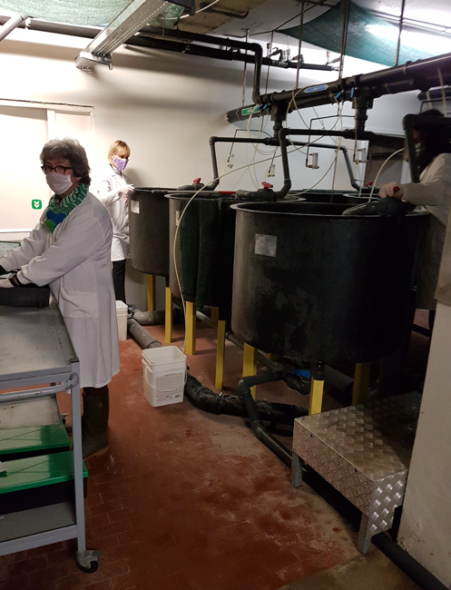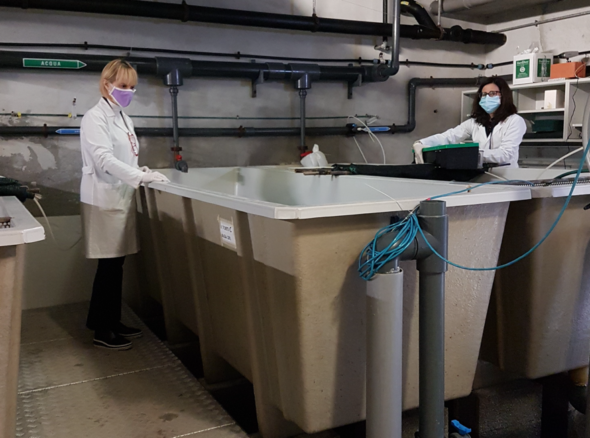Following Italian Government provisions, since 1 March, University of Insubria has imposed very strict measures to prevent the spread of the COVID-19 virus. These measures are affecting our research activities, including AquaIMPACT project. Shutting the lab down came as a bit of a shock, our core RNA-sequencing research facility rejected all new samples, reagent orders were cancelled, travels for fish sampling abroad were banned, and everyone started working from home.

We regret we had to put a stop to so many experiments, but luckily, we were able to maintain the fish in our RAS facility, and although with limited access, some members of aquaculture research team were allowed to be on campus to look after the fish. As you can see in the picture, we are all wearing personal protective equipment (PPE) during this outbreak, and although it is effective at preventing infections, wearing PPE it is very unpleasant.
This sudden pandemic pushed us all to some level of anxiety and tension, but we are trying to see it as a chance to take a step back and spend more time thinking about strategies for answering scientific questions related to our main research topic: fish gut microbiota. This unique period while working from home allows us a good opportunity to obtain or refresh our background knowledge on new achievements in this area of research.
Thanks to the timely work of our Research unit, each member of my group has been assigned a fresh task to work on away from the lab, such as reviewing literature, doing in-depth reading on topics of interest, or analysing specific microbiota sequencing data sets and putting the results into manuscripts.
Weekly group and person-to-person meetings have continued virtually, using the web conferencing tools. So, although bench work has been stopped and productivity of Insubria’s team has been affected by the pandemic, much of our core research is continuing.
University of Insubria has been taking all the necessary measures for the safety of its employees and to best ensure the continuity of its activities.

Text: Genciana Terova & Marco Saroglia (University of Insubria)
